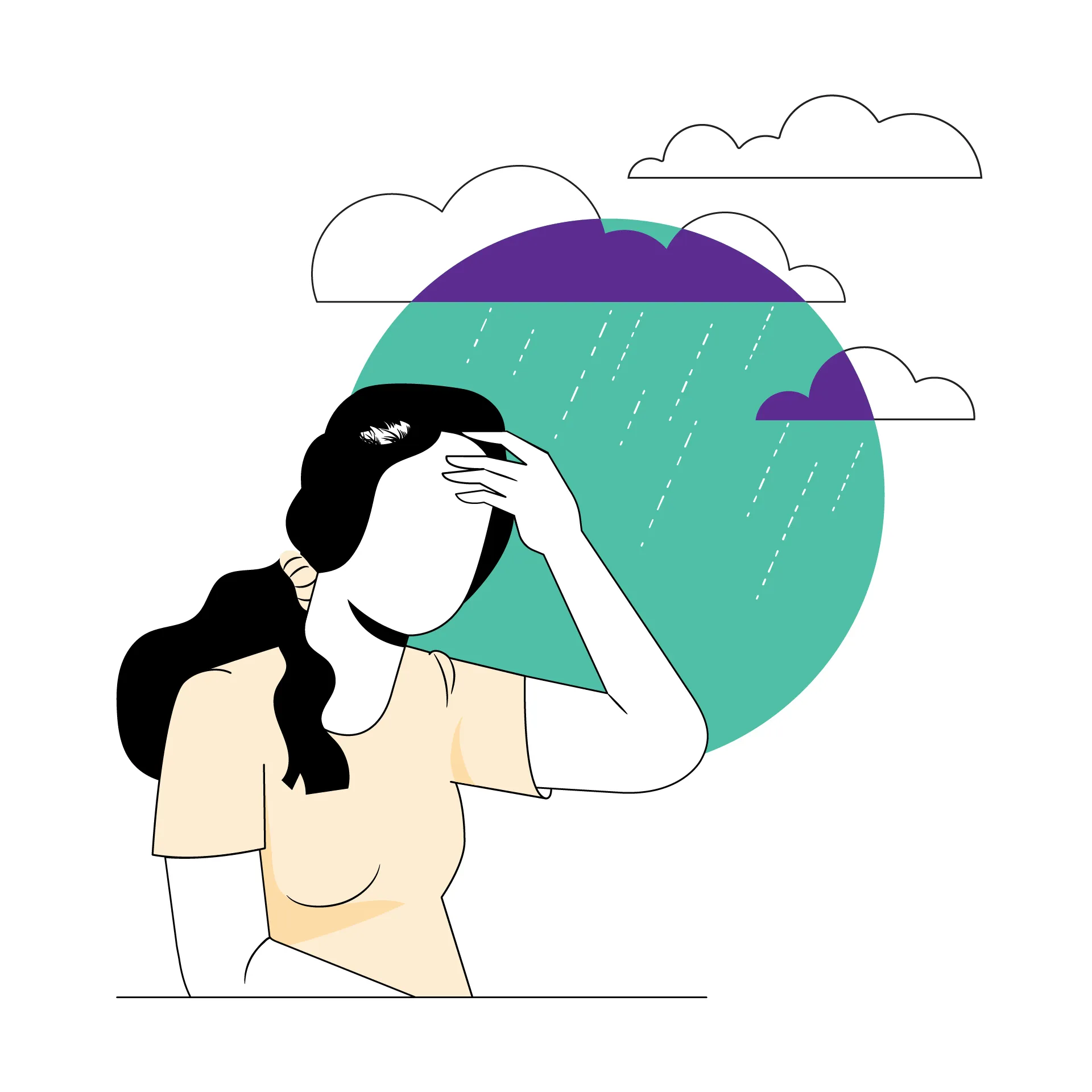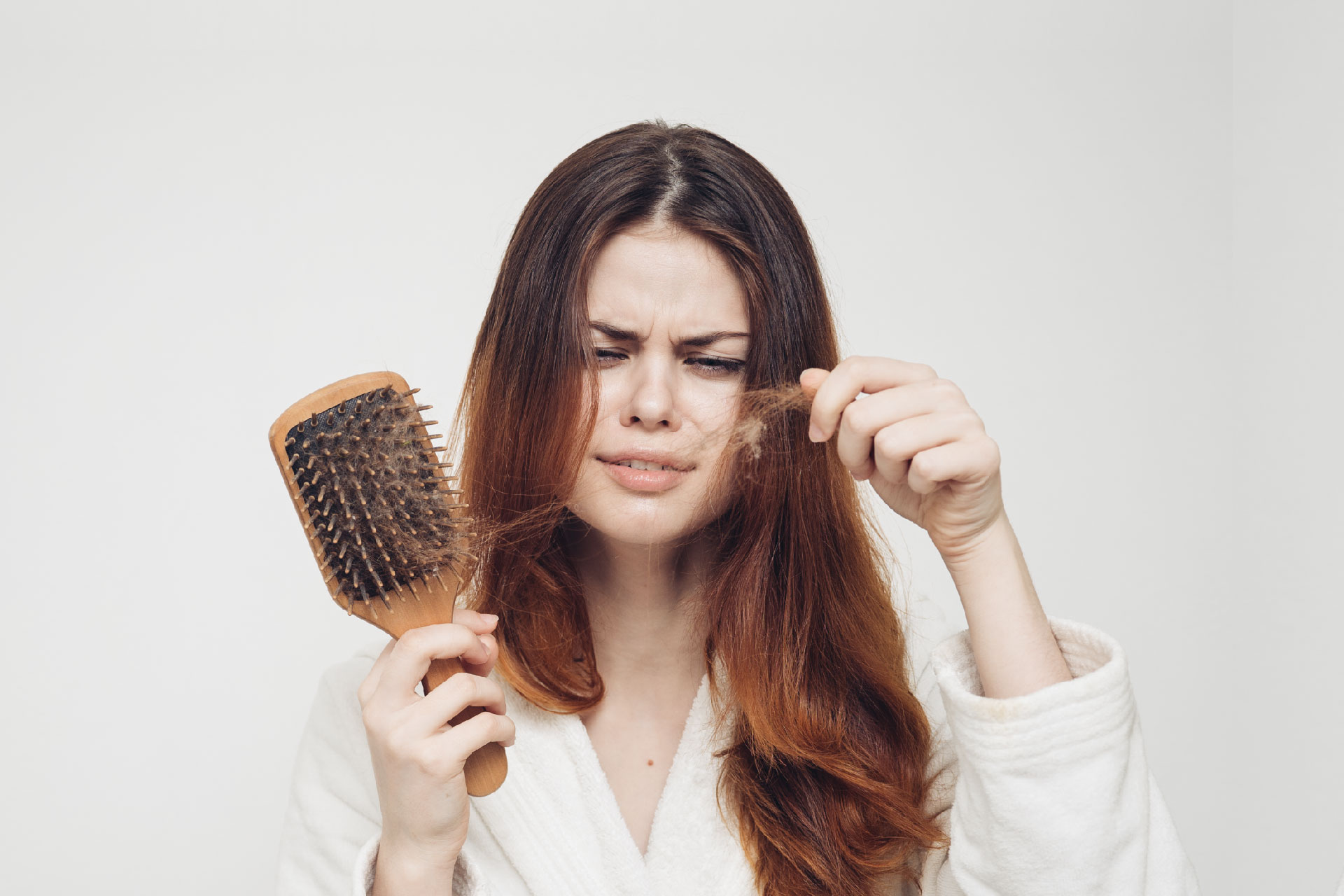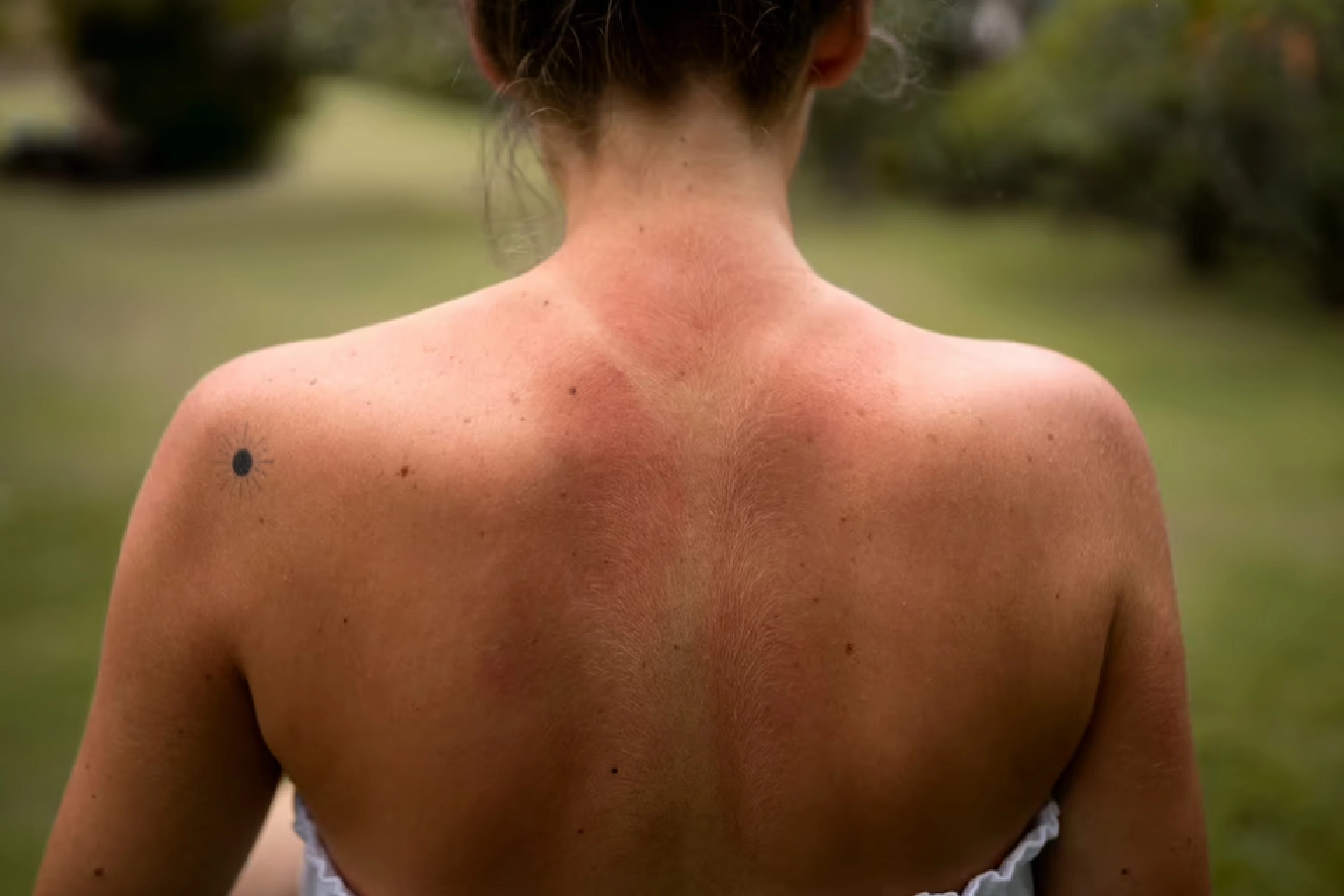Skin & Hair | 5 min read
Monsoon Hair Problems: How to Get Rid of It
Medically reviewed by
Table of Content
Synopsis
Monsoon could be one of the most lovable seasons because it arrives after summer and acts as an escape from the heat wave. But, unfortunately, monsoon also comes with many hair problems, making your overall hair clumsy and less bouncy.
Key Takeaways
- Monsoon hair loss is also an issue faced by most people due to infected scalp
- Monsoon hair diseases like infection and itchiness are also developed when your hair is exposed to acidic rainwater
- Problems like lice in your hair can affect hair growth, and if not treated initially, they could become a severe problem
Most Prevalent Hair Problems
There are around four to five most common monsoon hair problems that will affect your everyday life. This issue can ruin your overall day of joy and convert into unnecessary stress for your hair. This topic will help to analyze and detect some of the most prevalent hair problems during monsoons.
1. Hair Fall
Moderate or excessive hair fall during monsoon are common because, during this period, the air is humid and makes your hair release water, making your scalp vulnerable to dust particles.
Ultimately, you will witness hair loss more frequently compared to other seasons. Unfortunately, this issue is faced by millions of people as it is not that easy to detect before your hair loss.
2. Bacterial and Fungal Infections
During monsoon, it is highly probable that your hair will be exposed to rainwater more frequently. Rainwater is acidic and, in turn, will make your scalp wet and oily.
An oily scalp can cause the problem of bacterial and fungal infection, which in turn will cause you issues like constant itching and will invite lice into the hair.

3. Grey Hair
In the monsoon, it is predicted that the issue of hair problems probably increases by 35% percent about other seasons [1]. You need to take care of your hair by providing it with the necessary vitamins and minerals which will protect your hair during this season.
If not, your hair will be more susceptible to grey color at an early age. You can learn more about how to stop grey hair through blogs and doctoral suggestions.
4. Dandruff
Dandruff is the most common monsoon hair problem that is faced by the majority of people during monsoon season as our hair gets exposed to rainwater. It is caused by a fungus called Malassezia [2], which is also the underlying issue for other problems like itching, weakening of the scalp, etc.
Best Monsoon Hair Care Tips
There are several tips and suggestions which can help you to get rid of the most common monsoon hair problems. You just need to be aware of the product content and follow a routine for your hair care. Let’s look at some of the tips for your hair.

1. Oiling
If your hair is dry and frizzy due to exposure to weather, you need to oil it with organic hair oil. Coconut oil helps to straighten frizzy hair. It contains several natural vitamins and minerals, which are helpful for your hair in the long run.
A good oil massage in your hair will make it pop and will nourish it to protect it from underlying common monsoon problems.
2. Dry Hair
It is very necessary that you keep your hair dry as much as possible in the monsoon season as wet and sticky hair is more susceptible to bacterial and fungal infections. You need to let your hair dry naturally and avoid exposure to rainwater as much as possible.
You can use a blow dryer to dry your hair instantly so that there is less chance of infection and bacterial diseases. Improper drying of the hair also leads to hair fall during monsoon.
3. Scalp Cleaning
An uncleaned and poorly-maintained scalp could give rise to the most common monsoon problem, which is dandruff. When your hair is exposed to rainwater, several unwanted particles penetrate into your scalp and mess with the pH level, which causes dandruff.
Dandruff can be cured by applying mild conditioner and shampoo to your hair. In case the amount of dandruff is unbearable, you probably need to consult a doctor. In case of any excess problems with your hair can’t be cured by everyday methods, you should probably visit a dermatologist as soon as possible to receive the best treatment and fix the problem before it takes the shape of a severe issue.
4. Washing Your Hair
You need to be aware that you don’t need to wash your hair every day, as it will dispose of your natural ingredients; instead, you should wash your hair on alternate days so that you can clean off the dirt and sweat collected due to the exposure of acidic rainwater and humidity. Also, you should properly wash your hair with a mild shampoo.
Additional Reading: Home Remedies to Avoid Hair Fall During Monsoon.Tips For Body Consumption
You should also focus on your intake of vitamins and minerals, which are essential for your hair, so that your hair doesn't get affected by monsoon hair problems.
1. Minerals
You should keep track of consuming minerals and vitamins such as Vitamin A, E, and D, along with minerals like zinc, iron, copper, etc. These minerals help you grow your hair and keep it strong for a more extended period.
2. Bad intake
It is highly prohibited that you should stop smoking or intake other harmful drugs, as it will not only destroy your hair but can also cause severe diseases in your body. You can also opt for natural products such as ginger, gooseberry, sugarcane juice, etc., to repair or strengthen your hair.
It can’t be denied that your hair is more susceptible to problems like hair loss, dandruff, and grey hair over some time. You need to focus on some of the essential points that are mentioned in the article unless you will have to face unnecessary issues with your hair in your day-to-day lives.
Hair fall is an issue that is probably faced by the majority of Indians, and some of them invest a lot of money on surgeries like hair transplants. Still, if you will maintain a healthy lifestyle and will take care of easy day-to-day tasks for your hair, then you need not worry about the underlying problems associated with the monsoon season or in the future.
This article suggests all the necessary methods and habits that a person needs to follow to maintain healthy hair during monsoon season as specific and for the long run in general. If you wish to learn more about other health issues, tips for cures, and healthy habits, then get doctor consultation from Bajaj Finserv Health.
References
- https://www.pinkvilla.com/fashion/beauty/how-control-hair-loss-during-monsoon-dermat-weighs-550891
- https://www.ncbi.nlm.nih.gov/pmc/articles/PMC3380954/
Disclaimer
Please note that this article is solely meant for informational purposes and Bajaj Finserv Health Limited (“BFHL”) does not shoulder any responsibility of the views/advice/information expressed/given by the writer/reviewer/originator. This article should not be considered as a substitute for any medical advice, diagnosis or treatment. Always consult with your trusted physician/qualified healthcare professional to evaluate your medical condition. The above article has been reviewed by a qualified doctor and BFHL is not responsible for any damages for any information or services provided by any third party.





